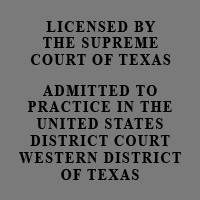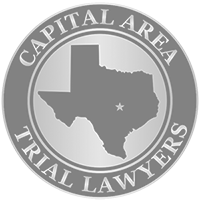Texas Real Estate Partition and Forced Sale Lawyer Represents Heirs, Beneficiaries and Other Real Estate Owners Sell Property
Texas partition lawyer, Jason Coomer, helps real estate owners force the sale of and divide Texas real estate. He commonly represents heirs and beneficiaries who have inherited real estate and want to sell or divide the real property. He also helps families avoid tax and real estate foreclosures by filing partition and forced sale lawsuits. Further, he helps property owners force the sale of houses, condos, buildings, commercial real estate, farms, mineral interests, lake houses, ranches, and other real property. He also represents families and other co-owners of Texas real property who want to partition or divide large parcels of real property.
For questions on Texas Real Estate Partition and Forced Sale Lawsuits, please send an e-mail message to Texas Real Estate Partition and Forced Sale Lawyer Jason S. Coomer or use our contact form to submit.

Below are some helpful FAQs regarding Texas Partition Actions and Texas Forced Real Estate Sale Lawsuits:
Q1: What is a Texas Real Estate Partition Action?A1: A Texas Real Estate Parition Action is a lawsuit filed to divide or force a sale of Texas real property owned by more than one person. These lawsuits are most commonly filed by people who inherit Texas real property, but also other co-owners of Texas real property. Overall, in these cases the owners cannot agree on what should be done with the real property or one of the owners cannot be located. In many of these situations, one or more owners want to use and keep the property, while other owners want to sell the property.
Q2: Why would owners of Texas real property want to partition, divide, or sell commonly owned real property?A2: Many owners of Texas real property cannot afford to or do not want to pay to upkeep real property they are not using. This is especially true when heirs or beneficiaries inherit Texas real property. Further, many times families and other co-owners who inherit real property cannot afford taxes or mortgage payments on real property. In many of these situations, one or more owners cannot be found or will not agree to sell. In these situations, a Texas Real Estate Partition Lawyer is commonly hired to negotiate with banks and tax lawyers to avoid a foreclosure. The lawyer also commonly files a partition lawyer to force the sale of real property or divide the real property.
Q3: What types of Texas real property can be sold through a forced sale lawsuit and what type of Texas real property can be partitioned?A3: Typically, unique property such as a house, condomenium, office building, store, or other commercial real property cannot be divided and must be sold through a forced sale. Other types of property such as Texas farm land, ranches, and undeveloped land can often be partitioned between the owners. Each case is different, but a general rule of thumb is if the property can be divided equally between the owners, it can be partitioned.Q4: How much does a Texas partition action or Texas forced real sale lawsuit cost?A4: The cost of a Texas partition lawsuit varies depending on the unique specifics of each case. More specifically, the location, type, and value of the property will all factor into the cost. As for the location of the real property, please keep in mind that Texas is a large state and the lawsuit will need to be filed in the county where the property is located. Therefore, the cost of a Travis County partition, will typically be different from Harris County (Houston), Dallas County, Bexar County (San Antonio), Williamson County, and Fort Bend County. Further, houses, condomeniums, and other property that cannot be divided will typically be less expensive to sell than tracts of land that typically need to be divided, fenced, and surveyed. Additionally, the value of the property can impact the price of a partition action as more expensive property typically requires more litigation regarding appraisal, expenses, and other potential setoffs. Overally, the value of the Texas real property (equity interest) typically needs to be at least $50,000.00 to justify the expense of a partition or forced sale action. Further, if the value of the property is over $100,000.00, some Texas partition and real estate forced sale lawyers will offer contigent contracts to owners with significant interests.
What is a Real Estate Partition (Partition in Kind v. Partition by Sale)
In simple terms a real estate partition is dividing real estate interests. When real estate is a large tract of land and owned by several different owners, a partition may be done as a partition in kind by dividing the land into sections so each owner ends up with a separate, but equal portion of the real estate. This partition process can be simple or complex depending on several factors including the type of real property that is being divided and the determination of the owners to litigate. The goal in a partition is to make sure that the division or partition is fair among the owners. However, when the real estate is a house, building, or other unique real estate a partition may be impractical or impossible. Some real property just cannot be divided by the owners including a house or building. In dealing with such unique property, the partition may need to be a partition by sale.
A partition in kind is a division of the property itself, whereas partition by sale constitutes a forced sale of the land, followed by division of the profits thus realized among the owners of the real estate. A common example of the partition by sale occurs when more than one person inherits a house or building.
When Does a Real Estate Partition by Sale Occur?
A Real Estate Partition commonly occurs after heirs or beneficiaries inherit a house or other real estate that cannot be divided. In some instances all or some of the heirs or beneficiaries live out of state or have their own homes and have no need for another house. In other instances one or more of the heirs or beneficiaries do not want a house and the other heirs cannot afford to purchase that heir's interest in the house or building. In these situations, a real estate partition by sale may be necessary.
Texas Real Estate Partition Lawyers, Texas Probate Real Estate Partition in Kind Lawyers, Texas Inherited Real Estate Partition by Sale Lawyers, Texas Real Estate Forced Sale Lawyers, and Texas Partition Lawyers
Texas Real Estate Partition Lawyer, Jason Coomer handles real estate partition lawsuits in Travis County, Williamson County, Bastrop County, Comal County, Blanco County, Llano County, Bexar County, and Hays County as well as works with other Texas real estate probate partition lawyers across Texas including Dallas County, Harris County, Fort Bend County, and Tarrant County. He works with Houston Real Estate Partition Lawyers, Dallas Real Estate Partition Lawyers, and several other Texas Probate Real Estate Partition Lawyers.
As A Texas Contingent Probate Lawyer, Contingent Death Benefit Lawyer, and Texas Contingent Estate Collection Lawyer, Jason S. Coomer, Helps Heirs and Benefits Collect and Transfer Probate, Non-Probate, and Estate Assets Including Royalties, Real Estate, and Mineral Interests
In some situations family assets cannot get transferred or collected by their rightful heirs or beneficiaries because the heirs and beneficiaries cannot afford the cost of probate and other transfer costs. In these situations, a Texas Contingent Probate Lawyer or Texas Contingent Death Benefit Lawyer that works on a percentage of the estate property can help heirs and beneficiaries transfer estate property to rightful heirs and beneficiaries.
In these situations, the Texas Contingent Probate Lawyer or Texas Contingent Death Benefit Lawyer will typically need to see that there are actual significant assets in the estate and who the rightful heirs and beneficiaries are of the estate. In these cases, bank statements, life insurance policies, royalty statements, mutual fund statements, retirement fund statements, real property deeds, property tax information, and other evidence of the estate assets can be useful in determining the approximate value of the estate and if a contingent contract for probating the estate can be viable. For more information on a Texas Contingent Probate Lawsuit or Texas Contingent Non-Probate Matter, please feel free to go to the follow web page: Texas Contingent Probate Lawyer and Death Benefit Collection Lawyer.
Texas Real Estate Partition Lawyer, Texas Probate Real Estate Partition in Kind Lawyer, Texas Inherited Real Estate Partition by Sale Lawyer, Texas Real Estate Forced Sale Lawyer, and Texas Partition Lawyer
Sometimes co-owners of real property cannot agree on how the property will be used or if it will be sold. In these instances, it is sometimes necessary to file a real estate partition lawsuit or a real estate forced sale lawsuit to divide the land, commercial property, lake house, mineral interest, or other real property. For questions on a Texas Real Estate Partition Lawsuit, Texas Inheritance Real Estate Partition Lawsuit or Texas Probate Real Estate Forced Sale Lawsuit, please send an e-mail message to Texas Real Estate Partition Attorney Jason S. Coomer or use our contact form to submit.
Law Offices of Jason S. Coomer
A Texas Law Firm
3901 S. Lamar Blvd., Ste. 260
Austin, TX 78704
Toll Free: (512) 474-1477
Phone: (866) 474-1477
Email: info@TexasLawyers.com
Feel Free to Contact Us with any Questions
Associations




